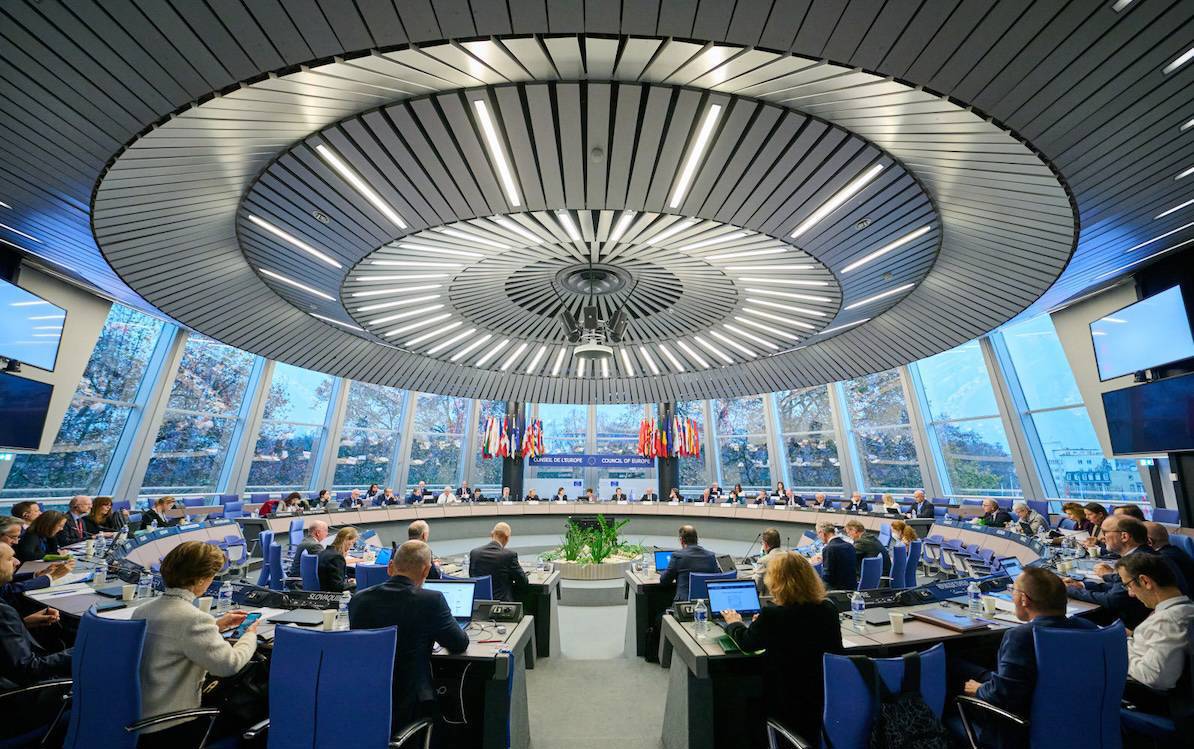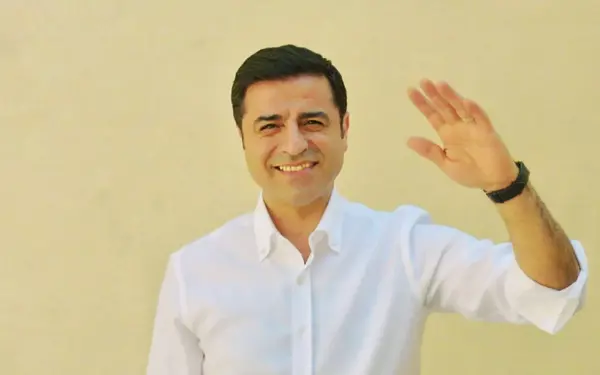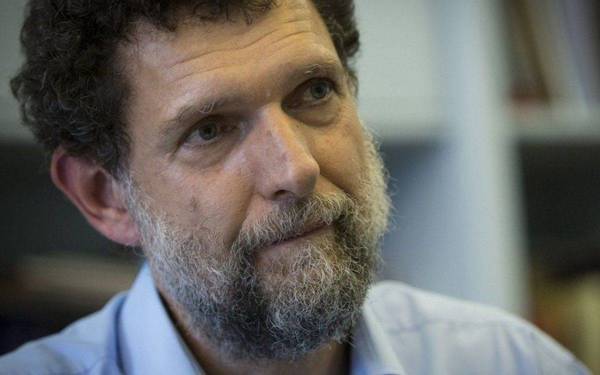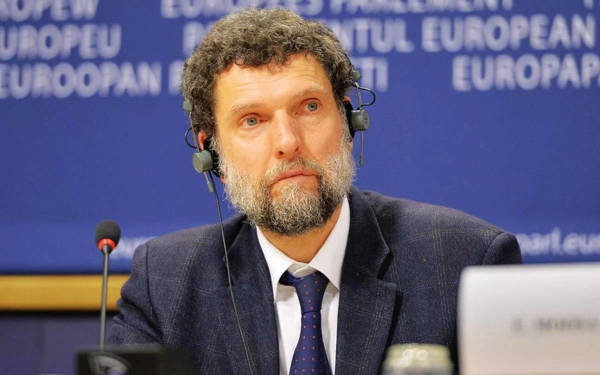During a visit to Turkey from June 11 to 14, 2024, a delegation from the Parliamentary Assembly of the Council of Europe (PACE) reiterated calls for the Turkish government to comply with the European Court of Human Rights (ECtHR) rulings concerning the continued detention of former Peoples' Democratic Party (HDP) Co-Chair Selahattin Demirtaş and philanthropist Osman Kavala.
Stefan Schennach, PACE's co-rapporteur for the monitoring of Turkey, emphasized the legal obligation of Turkey to adhere to the ECtHR's decisions. "The execution of Strasbourg Court judgments is a legal obligation enshrined in the European Convention on Human Rights," he stated during his visit.
Schennach met with various officials, including members of the Constitutional Court and the Ministries of Foreign Affairs and Justice, to discuss the implementation of the ECtHR's judgments and the continuation of high-level dialogue with the Council of Europe. He expressed gratitude to Yıldırım Tuğrul Türkeş, chairperson of Turkey’s delegation to PACE, for facilitating meetings with Kavala and Demirtaş.
Kavala has been imprisoned since October 2017, and despite two ECtHR judgments calling for his immediate release, his conviction for aggravated life imprisonment was upheld by the Court of Cassation in September 2023. Similarly, Demirtaş has been detained since November 2016, and in May 2023, he was sentenced to a 42-year prison term in the so-called ‘Kobanî case,’ a sentence Schennach strongly condemned as based on unfounded charges.
"The resolution of these cases lies in the hands of the Turkish judiciary," Schennach noted, expressing hope for a legal solution that aligns with the Committee of Ministers' supervision.
Trial of Selahattin Demirtaş
Selahattin Demirtaş was detained on November 4, 2016. He was arrested and sent to Silivri Prison in İstanbul on the same day. He is still behind bars in Silivri.
All his investigations, except for one, have been combined in a single file. The lawsuit filed at the Ankara 19th Heavy Penal Court has still not been concluded. As his request for release as part of this suit was rejected, his attorneys appealed to the Constitutional Court.
In their application to the Constitutional Court on May 29, 2018, the attorneys requested that his application be reviewed with priority. However, the Court has not yet responded to the application. On June 26, 2018, his case was taken to the ECtHR.
Shortly after this appeal to the ECtHR, the court announced its judgment in his second case. Tried in the case together with former HDP MP Sırrı Süreyya Önder, Selahattin Demirtaş has been sentenced to 4 years, 8 months in prison on the charge of "propagandizing for a terrorist organization" by the İstanbul 26th Heavy Penal Court.
One month later, on October 25, 2018, his verdict of conviction reached the 2nd Penal Chamber of İstanbul Regional Court of Justice, the court of appeal.
On November 17, 2018, the ECtHR announced that it would announce its judgment as to his application on November 20. The court of appeal swiftly reviewed the verdict of conviction of Demirtaş and started discussing it on November 19.
On November 20, 2018, the ECtHR concluded that Demirtaş was "arrested with political motivations" and ruled for his release.
The Ankara 19th Heavy Penal Court rejected his request for release on November 30, 2018, indicating that "his arrest was a moderate measure".
On December 4, 2018, the 2nd Penal Chamber of İstanbul Regional Court of Justice upheld his verdict of conviction. With this verdict, Demirtaş became an arrested convict.
The attorneys of Demirtaş appealed again to the ECtHR on February 19, 2019, and requested that the issues not discussed, found inadmissible and not regarded as violation right be reviewed again.
The government also appealed against the ECtHR verdict on Demirtaş. In its petition, the government also requested that the ECtHR review its ruling of right violation again. That being the case, the case of Demirtaş has been taken to the ECtHR Grand Chamber, which announced that it would discuss the application on September 18, 2019.
The Ankara 19th Heavy Penal Court on September 2 ruled that Demirtaş should be released. His imprisonment continued because of a separate verdict for hs arrest.
On December 22, 2020, the ECtHR Grand Chamber ruled for the immediate release of Demirtaş.
On September 17, 2021, The Committee of Ministers of the Council of Europe, which is responsible for overseeing the implementation of the ECtHR rulings, stated that Demirtaş should be released and gave time to Turkey until September 30 to announce an action plan about the European court ruling.
Kavala's imprisonment
Businessperson and rights defender Osman Kavala was detained on October 18, 2017, in an investigation into the 2013 Gezi Park protests. He was arrested on November 1 and placed in the Marmara (Silivri) Prison.
The justification for his arrest was his alleged attempt to 'overthrow the government' in the context of the Gezi protests and his alleged attempt to 'overthrow the constitutional order' in the context of the July 15 coup attempt.
He was acquitted in the Gezi Trial on February 18, 2020. However, he was not released. On the day of his acquittal, he was re-arrested on charges of attempting to 'overthrow the constitutional order.’ On March 9, 2020, he was arrested again under the same trial, this time on charges of 'political or military espionage'.
The acquittal decision in the Gezi trial was overturned, and he was retried. On April 25, 2022, he was sentenced to aggravated life imprisonment for 'attempting to overthrow the government'. The appeals court upheld the decision.
Meanwhile, the European Court of Human Rights (ECtHR), in its decision of December 10, 2019, determined that Osman Kavala's detention was arbitrary and based on political motives. Therefore, it ruled that Osman Kavala should be released immediately.
Due to Osman Kavala not being released in accordance with this decision, the Committee of Ministers of the Council of Europe initiated a 'violation procedure' against Turkey.
In its decision on July 11, 2022, the ECtHR Grand Chamber ruled that "[the decision of December 10, 2019] regarding Kavala, which found a violation of Article 5 in connection with Article 18 of the ECtHR, would render any action based on accusations related to the Gezi Park events and the coup attempt null and void."
However, courts ignored and did not implement the legally binding nature of these two decisions.
(EMK/VK)









